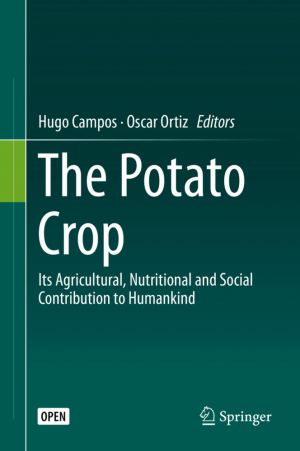
This book provides a fresh, updated and science-based perspective on the current status and prospects of the diverse array of topics related to the potato, and was written by distinguished scientists with hands-on global experience in research aspects related to potato. The potato is the third most important global food crop in terms of consumption...
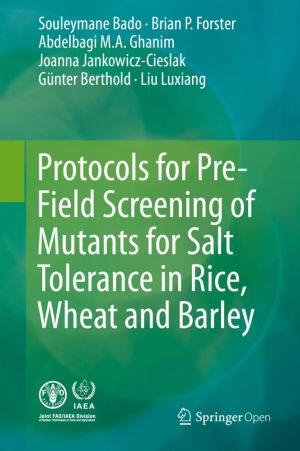
This book offers effective, low-cost and user-friendly protocols for the pre-field selection of salt-tolerant mutants in cereal crops. It presents simple methods for measuring soil salinity, including soil sampling and the analysis of water-soluble salts, and describes a detailed, but simple, screening test for salt tolerance in rice, wheat and bar...
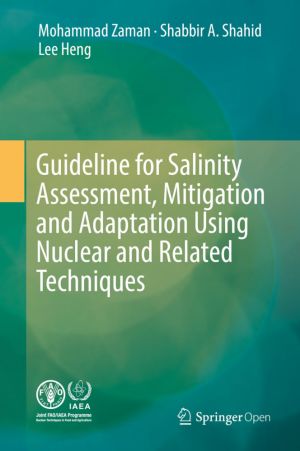
This book is an outcome of the collaboration between the Soil and Water Management & Crop Nutrition Section, Joint FAO/IAEA Division of Nuclear Techniques in Food and Agriculture, Department of Nuclear Sciences and Applications, International Atomic Energy Agency (IAEA), Vienna, Austria, and the International Center for Biosaline Agricultur...
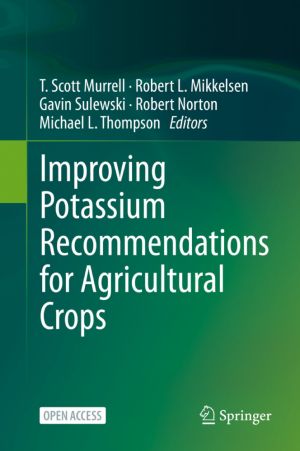
This open book highlights concepts discussed at two international conferences that brought together world-renowned scientists to advance the science of potassium (K) recommendations for crops. There was general agreement that the potassium recommendations currently in general use are oversimplified, outdated, and jeopardize soil, plant, and human h...
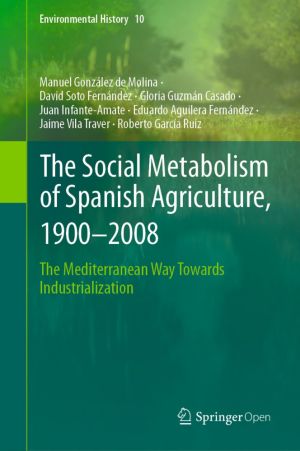
This book provides a panoramic view of the evolution of Spanish agriculture from 1900 to the present, offering a more diverse picture to the complex and multidimensional reality of agrarian production. With a clear transdisciplinary ambition, the book applies an original and innovative theoretical and methodological tool, termed Agrarian Social Met...
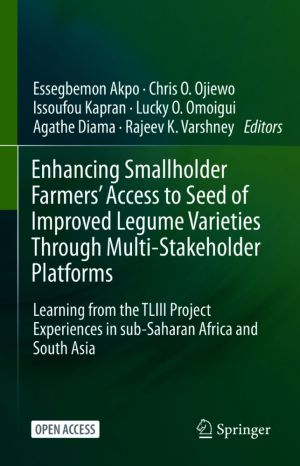
This open book shares the experiences of Tropical Legumes III (TLIII) project in facilitating access to seed of improved legume varieties to smallholder farmers through innovation platforms. It highlights practices and guiding principles implemented in eight developing countries of sub-Saharan Africa and South Asia. This book details key processes ...
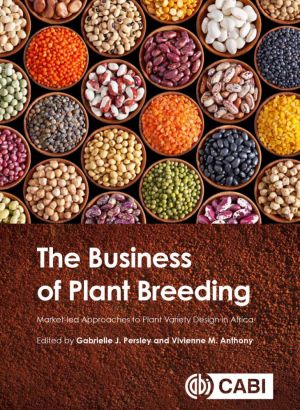
The Business of Plant Breeding is the result of a study on demand-led plant variety design for markets in Africa, sharing best practices from private and public sector breeding programmes worldwide that are applicable to improving tropical crops in Africa.
Beginning with an overview of the principles of demand-led plant breeding, the book then d...
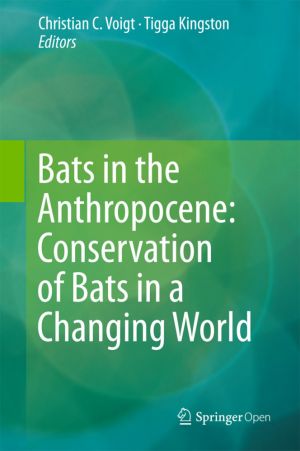
This book focuses on central themes related to the conservation of bats. It details their response to land-use change and management practices, intensified urbanization and roost disturbance and loss. Increasing interactions between humans and bats as a result of hunting, disease relationships, occupation of human dwellings, and conflict over fruit...
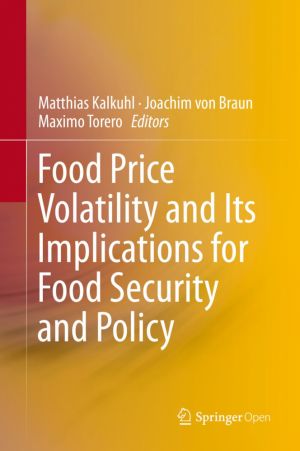
This book provides fresh insights into concepts, methods and new research findings on the causes of excessive food price volatility. It also discusses the implications for food security and policy responses to mitigate excessive volatility. The approaches applied by the contributors range from on-the-ground surveys, to panel econometrics and innova...
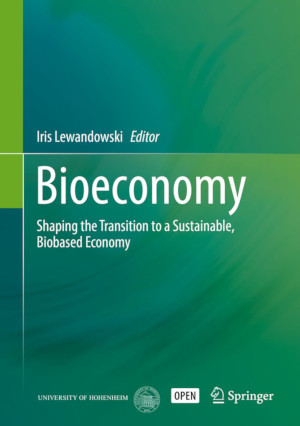
This book defines the new field of "Bioeconomy" as the sustainable and innovative use of biomass and biological knowledge to provide food, feed, industrial products, bioenergy and ecological services. The chapters highlight the importance of bioeconomy-related concepts in public, scientific, and political discourse. Using an interdiscipli...

This book presents the findings from on-site research into radioactive cesium contamination in various agricultural systems affected by the Fukushima Daiichi Nuclear Power Plant accident in March 2011. This third volume in the series reports on studies undertaken at contaminated sites such as farmland, forests, and marine and freshwater environment...
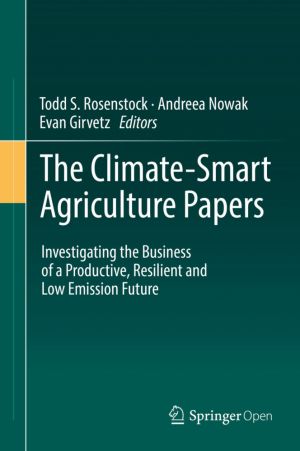
This volume shares new data relating to Climate-Smart Agriculture (CSA), with emphasis on experiences in Eastern and Southern Africa. The book is a collection of research by authors from over 30 institutions, spanning the public and private sectors, with specific knowledge on agricultural development in the region discussed. The material is assembl...
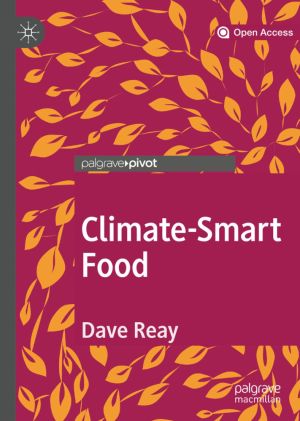
This book asks just how climate-smart our food really is. It follows an average day's worth of food and drink to see where it comes from, how far it travels, and the carbon price we all pay for it. From our breakfast tea and toast, through breaktime chocolate bar, to take-away supper, Dave Reay explores the weather extremes the world's fa...
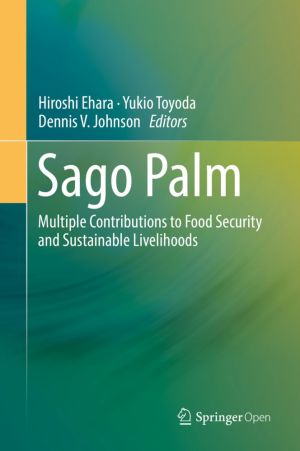
This book addresses a wide variety of events and technologies concerning the sago palm, ranging from its botanical characteristics, culture and use to social conditions in the places where it is grown, in order to provide a record of research findings and to benefit society. It discusses various subjects, including the sago palm and related species...
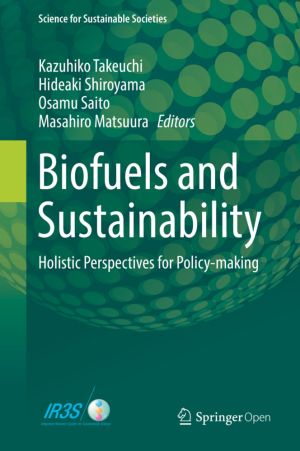
This book presents a comprehensive analysis of biofuel use strategies from an interdisciplinary perspective using sustainability science. This interdisciplinary perspective (social science-natural science) means that the strategies and policy options proposed will have significant impacts on the economy and society alike. Biofuels are expected to c...
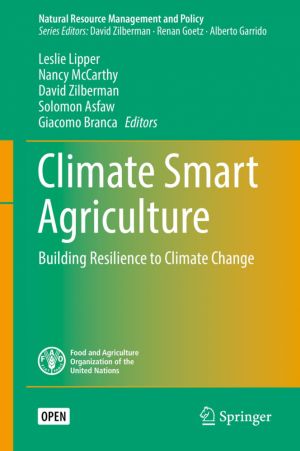
The book uses an economic lens to identify the main features of climate-smart agriculture (CSA), its likely impact, and the challenges associated with its implementation. Drawing upon theory and concepts from agricultural development, institutional, and resource economics, this book expands and formalizes the conceptual foundations of CSA. Focusing...
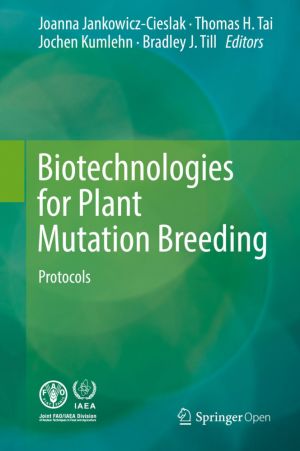
This book offers 19 detailed protocols on the use of induced mutations in crop breeding and functional genomics studies, which cover topics including chemical and physical mutagenesis, phenotypic screening methods, traditional TILLING and TILLING by sequencing, doubled haploidy, targeted genome editing, and low-cost methods for the molecular charac...
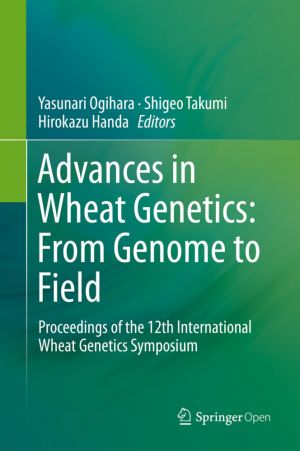
This proceedings is a collection of 46 selected papers that were presented at the 12th International Wheat Genetics Symposium (IWGS). Since the launch of the wheat genome sequencing project in 2005, the arrival of draft genome sequences has marked a new era in wheat genetics and genomics, catalyzing rapid advancement in the field. This book provide...

Reviews of Environmental Contamination and Toxicology attempts to provide concise, critical reviews of timely advances, philosophy and significant areas of accomplished or needed endeavor in the total field of xenobiotics, in any segment of the environment, as well as toxicological implications....
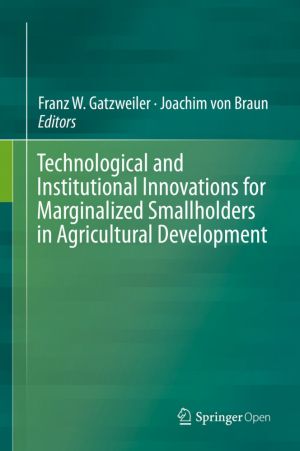
The aim of the book is to present contributions in theory, policy and practice to the science and policy of sustainable intensification by means of technological and institutional innovations in agriculture. The research insights re from Sub-Saharan Africa and South Asia. The purpose of this book is to be a reference for students, scholars and prac...
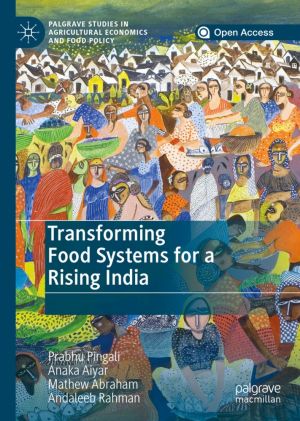
'This book… brings together high quality research, real world pragmatism and an understanding of the politics of Indian food systems.' – Lawrence Haddad, Executive Director, GAIN and 2018 World Food Prize Laureate'[The authors] have done a masterful job of [demonstrating] paradoxes of India's rapid economic growth concurrent...
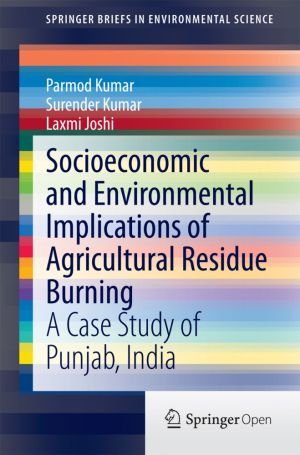
This book discusses the important issue of the socioeconomic and environmental impacts of agricultural residue burning, common in agricultural practices in many parts of the world. In particular, it focuses on the pollution caused by rice residue burning using primary survey data from Punjab, India. It discusses emerging solutions to agricultural w...

This open access volume presents a comprehensive account of all aspects of biological invasions in South Africa, where research has been conducted over more than three decades, and where bold initiatives have been implemented in attempts to control invasions and to reduce their ecological, economic and social effects. It covers a broad range of the...
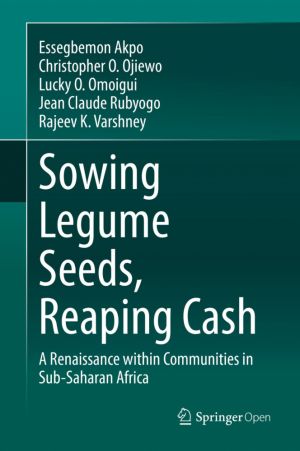
This open access book shares impact stories – testimonies from various value chain actors who have been part of the Tropical Legumes (TL) projects, over the past twelve years. The Tropical Legumes projects led by ICRISAT in three parts (TLI, TLII and TLIII), constitute a major international initiative supported by the Bill & Melinda Gates...
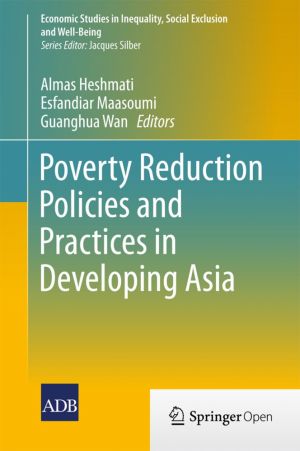
This book looks at the major policy challenges facing developing Asia and how the region sustains rapid economic growth to reduce multidimensional poverty through socially inclusive and environmentally sustainable measures. Asia is facing many challenges arising from population growth, rapid urbanization, provision of services, climate change and t...
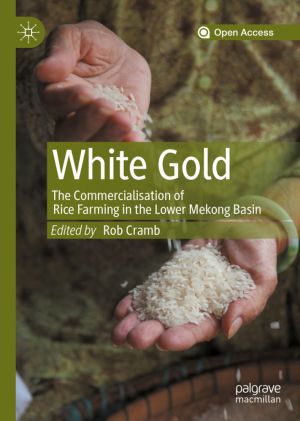
This open access book is about understanding the processes involved in the transformation of smallholder rice farming in the Lower Mekong Basin from a low-yielding subsistence activity to one producing the surpluses needed for national self-sufficiency and a high-value export industry. For centuries, farmers in the Basin have regarded rice as "...
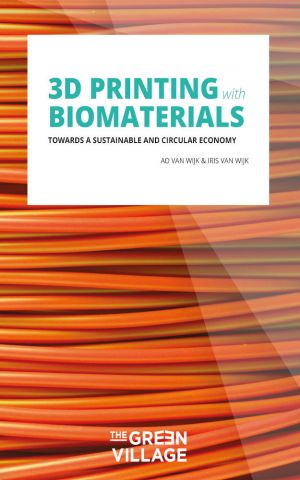
Additive manufacturing or 3D printing, manufacturing a product layer by layer, offers large design freedom and faster product development cycles, as well as low startup cost of production, on-demand production and local production. In principle, any product could be made by additive manufacturing. Even food and living organic cells can be printed. ...
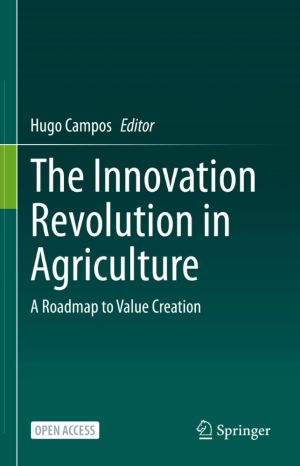
This open access book is an important reframing of the role of innovation in agriculture. Dr. Campos and his distinguished coauthors address the need for agriculture to feed a growing global population with a reduced environmental footprint while adapting to and mitigating the effects of changing climate. The authors expand the customary discussion...
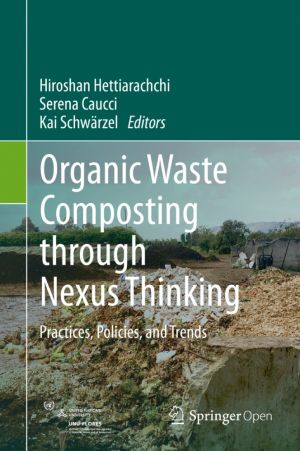
Organic waste composting is another excellent example to demonstrate the power and the benefits of nexus thinking. Even though organic waste composting itself is not a new topic, those who want to start a new project or align an ongoing project with nexus thinking, find it difficult to gather the necessary information. With nine case studies from f...
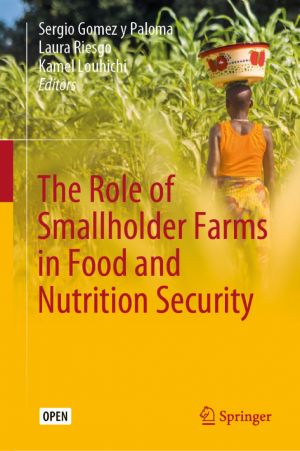
This open book discusses the current role of smallholders in connection with food security and poverty reduction in developing countries. It addresses the opportunities they enjoy, and the constraints they face, by analysing the availability, access to and utilization of production factors.Due to the relevance of smallholder farms, enhancing their ...
